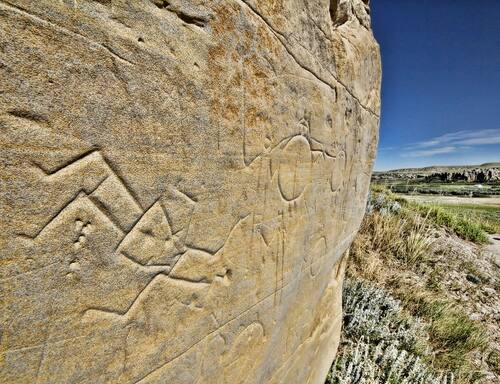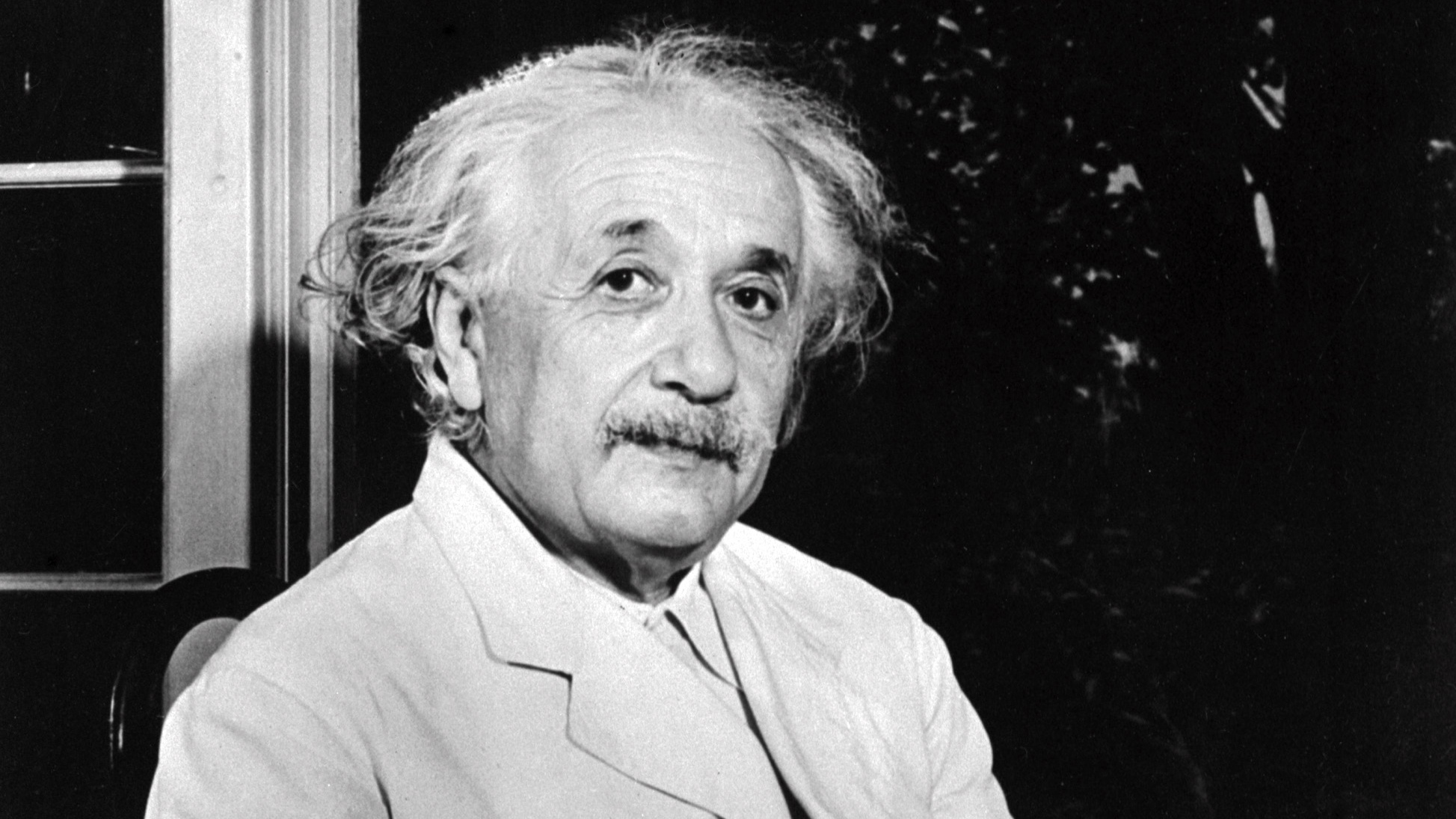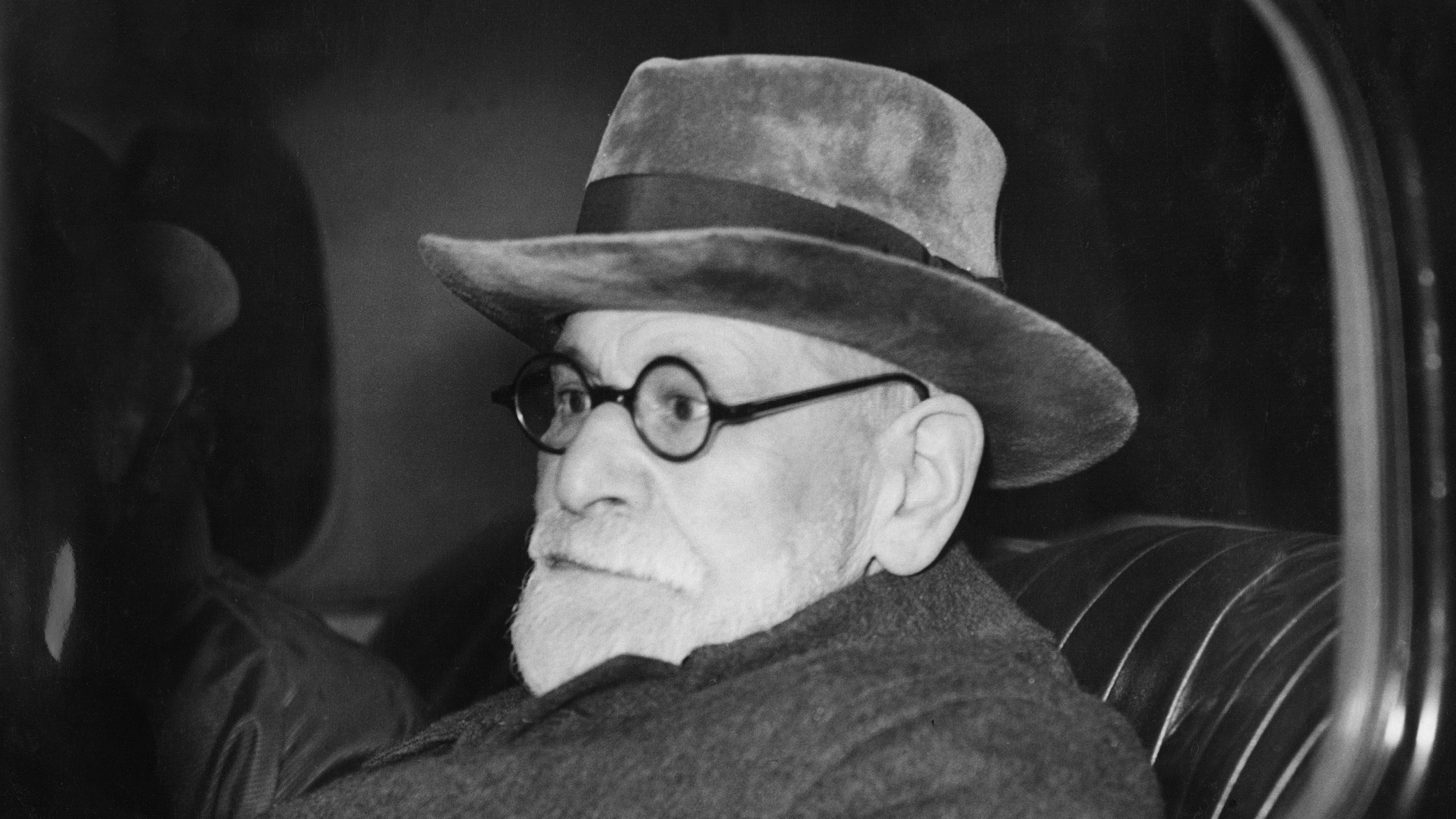52 ideas that changed the world - 43. Writing
Writing is the foundation of history, great literature – and this article

A free daily email with the biggest news stories of the day – and the best features from TheWeek.com
You are now subscribed
Your newsletter sign-up was successful
In this series, The Week looks at the ideas and innovations that permanently changed the way we see the world. This week, the spotlight is on writing:
Writing in 60 seconds
Writing is a method of using symbols to represent language in a readable form. The symbols are usually letters (which can form words), punctuation and spaces.
The Week
Escape your echo chamber. Get the facts behind the news, plus analysis from multiple perspectives.

Sign up for The Week's Free Newsletters
From our morning news briefing to a weekly Good News Newsletter, get the best of The Week delivered directly to your inbox.
From our morning news briefing to a weekly Good News Newsletter, get the best of The Week delivered directly to your inbox.
It relies on the same semantic structures as the spoken language it represents, combined with symbols, to produce a “text” which can then be interpreted by a “reader”.
Writing sits alongside listening, speaking and reading as one of the four key language skills, says Columbia Gorge Community College, near Portland, Oregon. It allows for languages with a written form to go beyond the limits of the spoken form by creating a durable and more easily communicated and transmitted form of communication.
It can be used as a method of communication, for example when words are written down in a letter, email or novel, or privately – in the case of a journal or diary.
Writing can facilitate the process of gaining knowledge, because it has been shown that it allows humans to externalise their thoughts in forms that are easier to reflect on.
A free daily email with the biggest news stories of the day – and the best features from TheWeek.com
How did it develop?
Writing systems did not develop in one place, but were invented independently throughout different periods and regions in human history.
The earliest recorded full writing system was believed to have originated in Mesopotamia (roughly present-day Iraq), where cuneiform was used between 3400 and 3300BC. Cuneiform was an early writing method where wedge-shaped marks were made on clay tablets, using a blunt reed for a stylus.
The process was refined over 600 years, and gradually the symbols lost the visible similarity to the objects they originally represented. They began to be read from left to right in horizontal lines, as opposed to the vertical lines they had been read in previously.
Cuneiform endured as a writing system well into the Christian era, with the latest dateable document in cuneiform coming from AD75.
While writing was being developed in Mesopotamia, early forms were also being explored in Egypt. Symbols that show features similar to early hieroglyphic forms have been found that date back to 3250BC, says James Allen in his book Middle Egyptian: An Introduction to the Language and Culture of Hieroglyphs.
From 3200BC, Egyptian hieroglyphs were used on labels for items buried with people in tombs and on ceremonial surfaces used for grinding cosmetics. It was in Egypt that the world’s earliest examples of writing with ink and pens is found.
It is also from Egyptian hieroglyphs (carved symbols) and hieratic (in writing) that an alphabet would first evolve, sometime from 1850BC onwards.
Elsewhere, a fully operational writing system was being developed in late Shang-dynasty China, around 1300BC. Bones were discovered from this period that have symbols carved into them.
“To date, nearly 150,000 examples of such bones have been found, containing over 4,500 different symbols, many of which can be identified as the ancestors of Chinese characters still in use today,” says the British Library.
And between 900 and 600BC, writing also appears in the cultures of Mesoamerica, covering modern-day Mexico, Belize, Guatemala, El Salvador, Honduras, Nicaragua, and northern Costa Rica.
Two systems were found to be in use, one tied to the sound and grammatical structures of specific languages, and another that was not linked to a specific language.
Symbols have been found on objects from the Indus River valley (Pakistan and northwest India) dating back as far as 7000BC that could be a basic form of writing.
There is “little evidence of any links between these systems, with each possessing unique qualities”, says the British Library.
However, when these early writing systems began to be imported to other cultures, writing and language as we know it today developed.
“Greek and Latin would serve as the basis for European script in the same way that the Semitic Aramaic script would provide the basis for Hebrew, Arabic, and possibly Sanskrit,” says the Ancient History Encyclopaedia.
–––––––––––––––––––––––––––––––For a round-up of the most important stories from around the world - and a concise, refreshing and balanced take on the week’s news agenda - try The Week magazine. Start your trial subscription today –––––––––––––––––––––––––––––––
How did it change the world?
The importance of writing and its impact on the world cannot be overstated. It is perhaps the most crucial tool in recording and sharing history, in advertising, propaganda, distance communications, literature and the arts, and beyond.
Writing gives us an understanding of times before our own in a way that no other medium could. Far from being rendered redundant as a tool for creating artefacts after the invention of the camera, it remains arguably the most important method of communicating knowledge and history.
“Writing is both an essential part of the learning process and one of the most important ways that historians communicate their ideas and conclusions to one another,” says George Mason University’s history department.
Writing can also be used to express thoughts and emotions. “As a reader, you see through the words into an image that they create, and it is in this image that emotions are shown and expressed, and not merely told,” says Trip Glazer, a philosopy professor, in this London School of Economics essay.
“In whatever age, since its inception, writing has served to communicate the thoughts and feelings of the individual and of that person’s culture, their collective history, and their experiences with the human condition, and to preserve those experiences for future generations,” says the Ancient History Encyclopaedia.
Writing has become of huge importance to the productivity of the modern working world as new technologies have seen much workplace communication rely on digital communication such as email, social media and instant messenger platforms.
-
 Political cartoons for February 12
Political cartoons for February 12Cartoons Thursday's political cartoons include a Pam Bondi performance, Ghislaine Maxwell on tour, and ICE detention facilities
-
 Arcadia: Tom Stoppard’s ‘masterpiece’ makes a ‘triumphant’ return
Arcadia: Tom Stoppard’s ‘masterpiece’ makes a ‘triumphant’ returnThe Week Recommends Carrie Cracknell’s revival at the Old Vic ‘grips like a thriller’
-
 My Father’s Shadow: a ‘magically nimble’ film
My Father’s Shadow: a ‘magically nimble’ filmThe Week Recommends Akinola Davies Jr’s touching and ‘tender’ tale of two brothers in 1990s Nigeria
-
 52 ideas that changed the world - 52. Zero
52 ideas that changed the world - 52. ZeroIn Depth The technology on which you’re reading this article only works because of zero
-
 52 ideas that changed the world - 50. Money
52 ideas that changed the world - 50. MoneyIn Depth Millennia of civilisations have used mediums of exchange ranging from seashells and cows to bitcoin and cash
-
 52 ideas that changed the world - 49. Ecology
52 ideas that changed the world - 49. EcologyIn Depth Scientific ecology can be traced back to Charles Darwin and considers living things and their environment
-
 52 ideas that changed the world - 47. Relativity
52 ideas that changed the world - 47. RelativityIn Depth Einstein’s theory remains ‘most important in modern physics’
-
 52 ideas that changed the world - 46. The unconscious mind
52 ideas that changed the world - 46. The unconscious mindIn Depth The theory of an obscured section of human consciousness has hooked psychologists for centuries
-
 52 ideas that changed the world - 42. Monogamy
52 ideas that changed the world - 42. MonogamyIn Depth The roots of monogamy have more to do with evolution than romance
-
 52 ideas that changed the world - 41. The wheel
52 ideas that changed the world - 41. The wheelIn Depth The wheel might seem simple, but it took humans a long time to figure it out
-
 52 ideas that changed the world - 39. Selective breeding
52 ideas that changed the world - 39. Selective breedingIn Depth Domesticating animals and creating plants and crops allowed agriculture to flourish